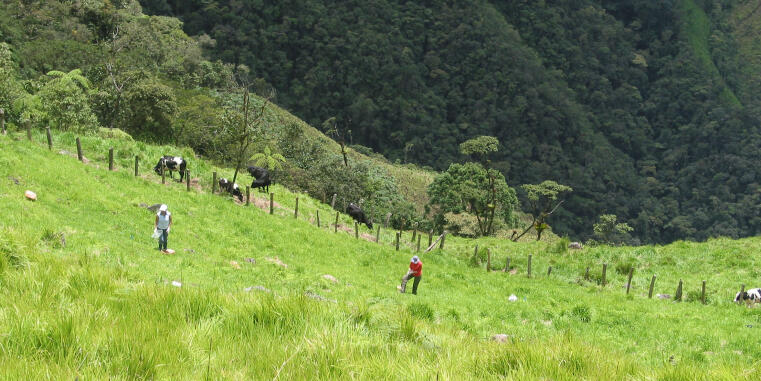
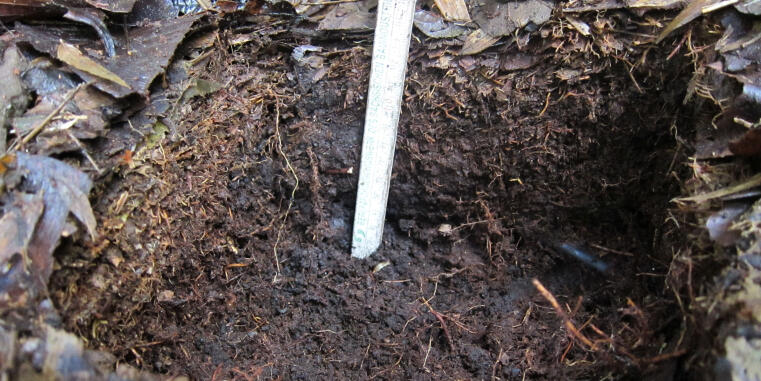
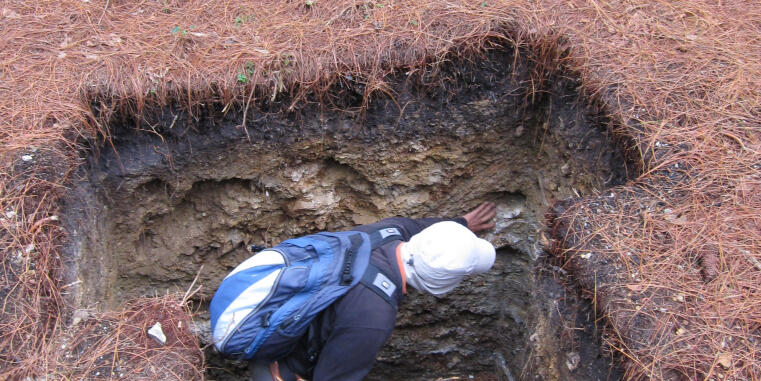
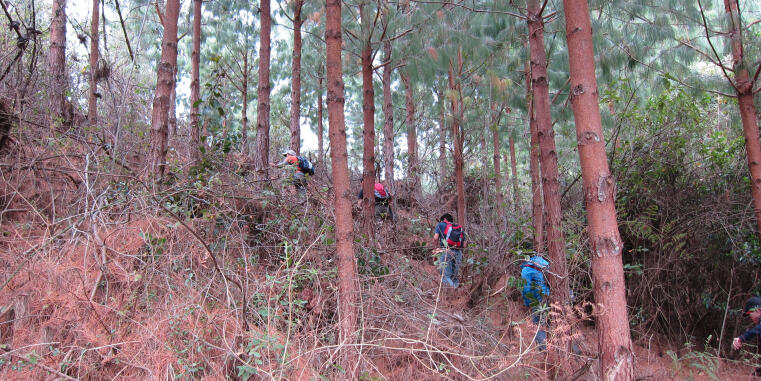




Prof. Dr. Ute Hamer:
during semester term: Tuesday from 1 to 3 p.m.
Die Klausur findet am Dienstag, den 24.09.2024 um 10:15 Uhr im GEO I in der Heisenbergstr. 2 statt.
Achtung: Ohne vorherige Qispos-Anmeldung der Modulabschlussprüfung ist die Teilnahme an der Klausur nicht möglich!
Ausblick: Ein weiterer Klausur-Termin wird im Februar 2025 angeboten
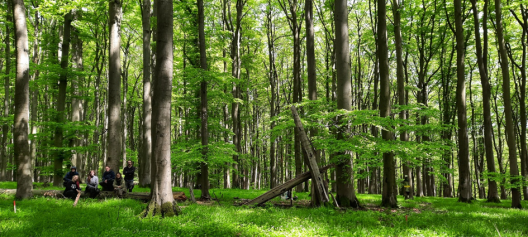
Dann ist das neue Projekt der AG Bodenökologie und Landnutzung das richtige für Dich!
HiWi-Jobs und Themen für Abschlussarbeiten (B.Sc., M.Sc.) oder Forschungsprojekte in Naturwaldzellen
Für das neue Projekt „Kohlenstoffspeicher in nordrhein-westfälischen Naturwaldzellen“ suchen wir zum nächst möglichem Zeitpunkt interessierte und motivierte Hiwis. Wir werden in 16 Naturwaldzellen verteilt über ganz NRW Bodenproben ziehen. Dafür ist auch mal die ein oder andere Übernachtung außerhalb Münsters von Nöten und natürlich recht lange Fahrten durchs Land, ein Führerschein wäre also von Vorteil. Im ILÖK-Labor werden wir dann die Proben aufbereiten und messen. Die Einstellung erfolgt ab Mai bis Ende Dezember 2024, die Hiwis sollten für alle Arbeiten gleichermaßen motiviert sein.
Auch sind Abschlussarbeiten oder Forschungsprojkete im Projekt mit dem Fokus auf Boden und in Verknüpfung mit bereits vorhandenen Vegetations- und Waldstrukturdaten denkbar.
Das Projekt ist die ideale Gelegenheit Kompetenzen im Bereich Bodenkunde zu vertiefen, methodische Fähigkeiten im Labor auszubauen und sich nebenbei mit der Landschaft ALLER Regionen in NRW auseinanderzusetzten!
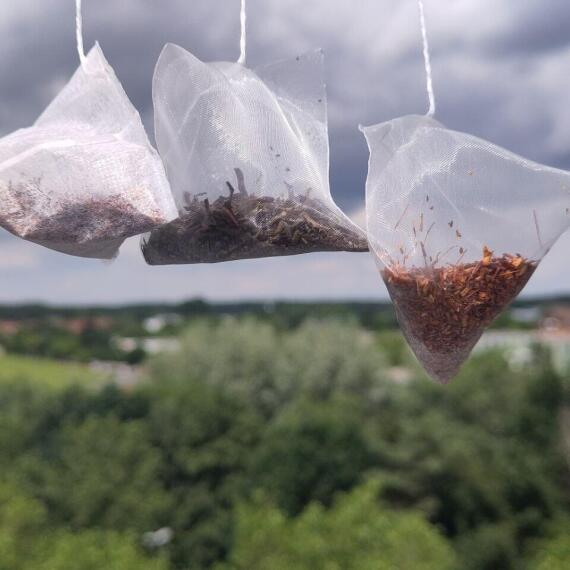
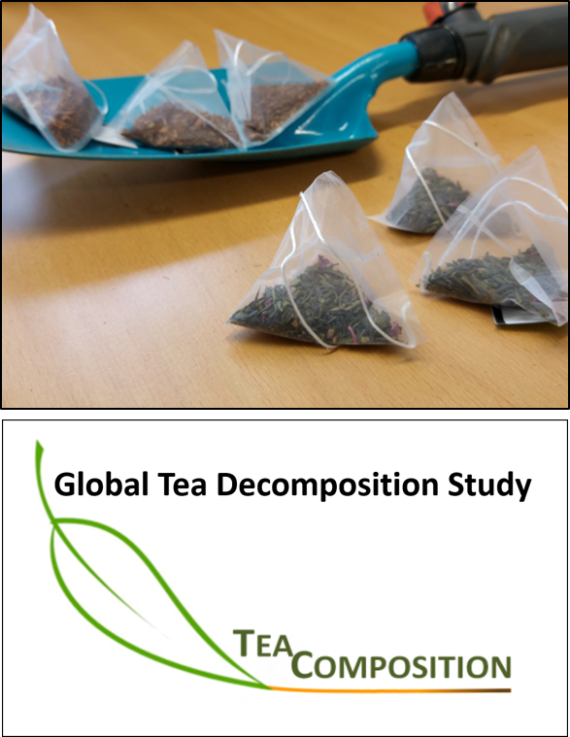
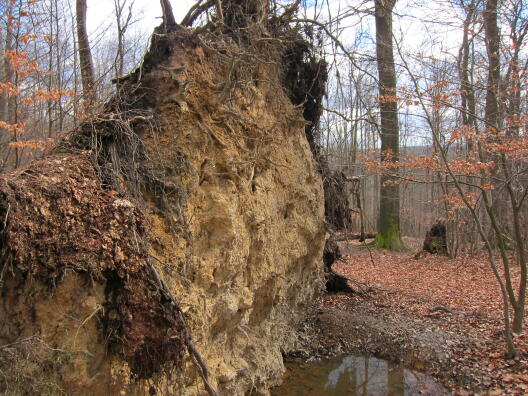
Significant amounts of carbon are stored in Central European forests. In addition, forests and their soils are important for biological diversity, which in turn strengthens the adaptability and stability of the forest ecosystem. The aim of this project, which is carried out jointly with the NABU-Naturschutzstation Münsterland [de] and the Landesbetrieb Wald und Holz Nordrhein-Westfalen (NRW) [de] , is a synoptic view of the carbon balance and biodiversity - above and below ground. The studies planned for the next three years should help to better assess the influence of the intensity of use on the performance of forests in terms of biodiversity, carbon storage and climate stability.
Further information:
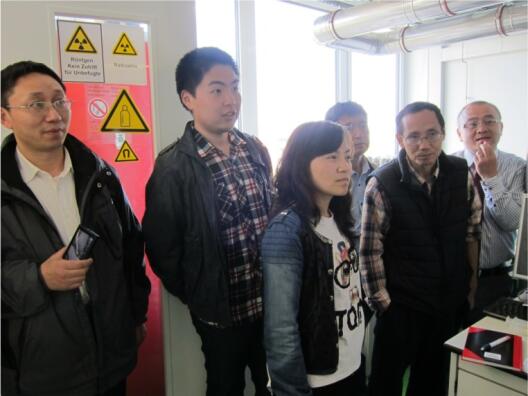
Dr. Na Li receives a research scholarship from the Alexander von Humboldt foundation. The soil scientist from the Northeast Institute of Geography and Agroecology (Chinese Academy of Sciences, Harbin) is going to investigate the turnover of the organic matter in black soils in the north-east of China in cooperation with her hosts Dr. habil-.Ute Hamer (ILÖK) and Prof. Dr. Yakov Kuzyakov (Göttingen University).
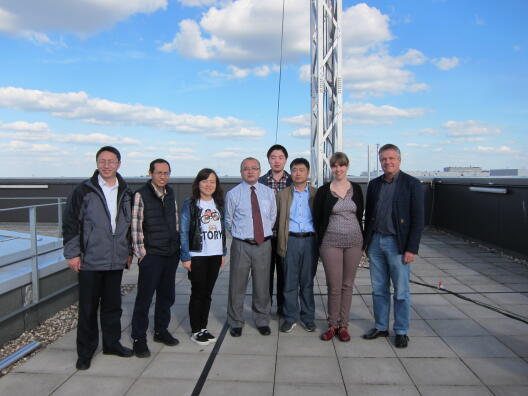
Soil Scientists from Germany and China met in may at the ILÖK for the Kick-off Meeting of a collaborative research project under the responsibility of Dr. habil. Ute Hamer and Prof. Dr. Bin Zhang. The soil's organic matter of black soils in the north-east of China is the focus of the research. The fertility of the black soils (Mollisols) in the region, that are used for intensive agriculture, is strongly endangered through soil erosion and the loss of the soil's organic matter. The aim of the project is to better understand the biological and physical mechanisms that control the decomposition, respectively the stabilisation of organic matter in the black soils. For this purpose, modern analytical techniques like isotope technology, computer tomography and NMR-spectroscopy are used.